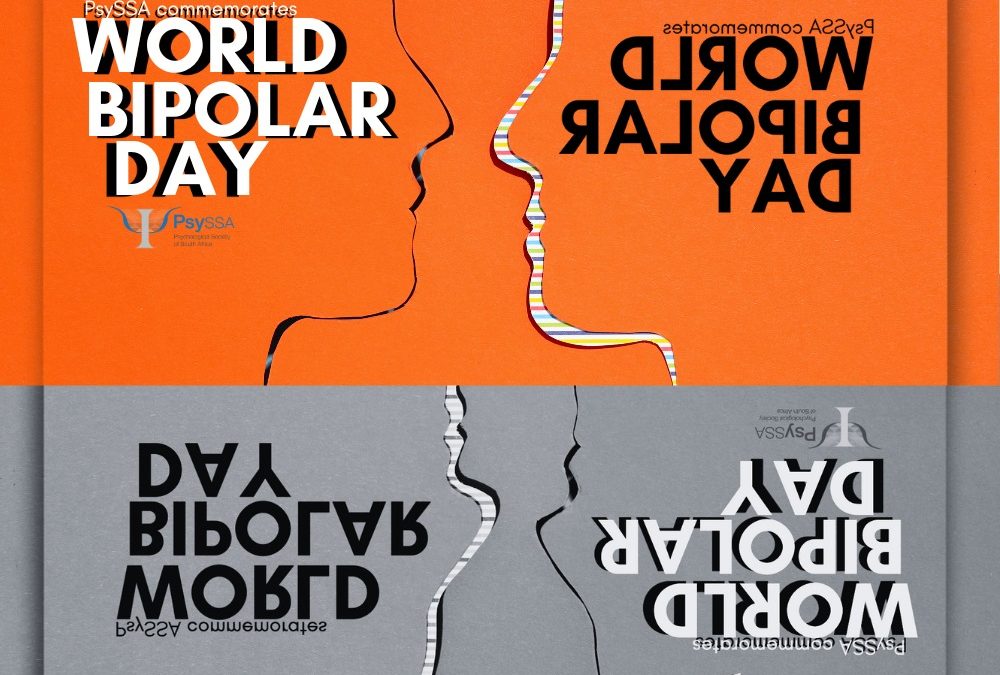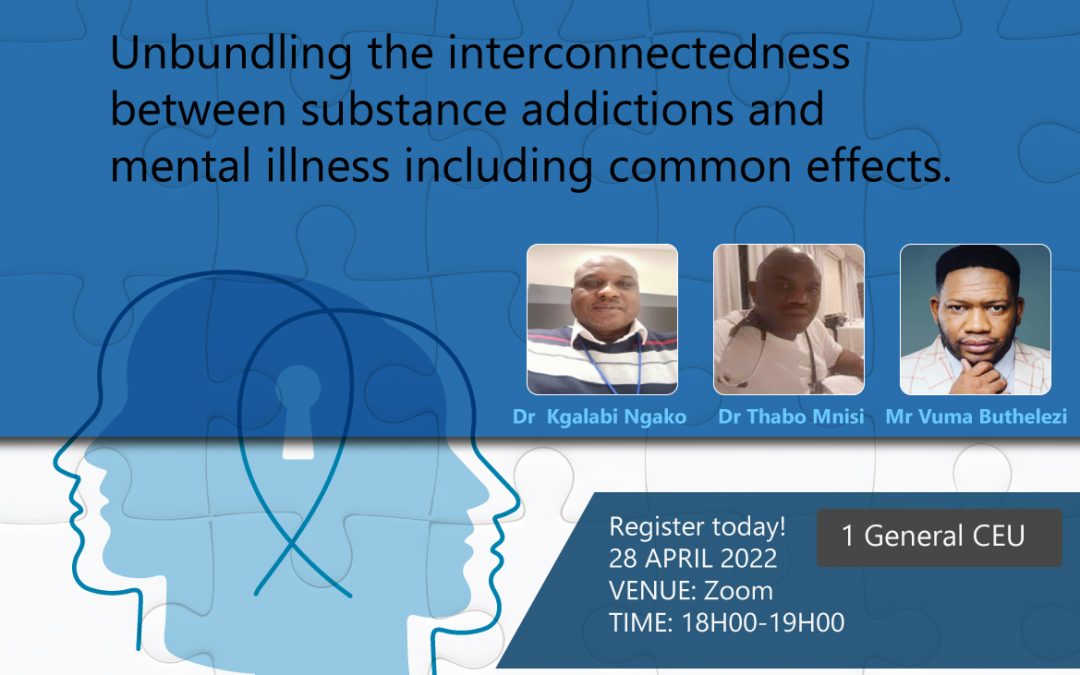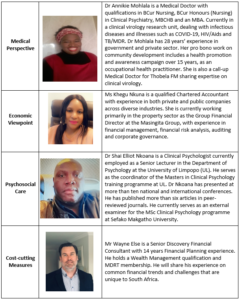World Bipolar Day: Understanding Bipolar Disorder and Reintegration into Community in South Africa
By Barry Viljoen and Samke Ngcobo
Bipolar is a mood disorder which is characterised by clear and distinct periods of mood found on alternative poles of the mood spectrum. This means that there will be periods when a clear and visible depressed mood is present and that there will be periods of an elevated mood either being a manic or hypomanic episode. While these periods can vary in intensity, it can result in significant disruptions in daily life.
The World Health Organisation currently estimates that 1 in 150 adults live with this disorder, equalling to approximate 40 million people. While within South Africa it is estimated that 3-4% of the population experience this disorder, with it equally affecting men and women.
On this day we attempt to raise awareness about the importance of a greater understanding of bipolar, so that earlier diagnosis and treatment can be accessed by all South Africans. People living with bipolar are discouragingly being subjected to societal challenges, such as exclusion and discrimination. However, the hope is that with public education and awareness campaigns, that the tide will turn. Which will in turn allow for access to adequate treatment and support systems. So that they are able to reclaim their place within society and our communities, through the living of meaningful and fulfilling lives and making meaningful contributions to society.
Bipolar cuts across race, class and other demographic divides. As such it is only through the embrace of a more inclusive mindset, that we can create an environment that fosters, healing, connection and opportunity for all. Steps towards achieving this goal are being paved by brave and outspoken activists, and in this specific piece the personal activist, Dr. Samke Ngcobo, that we as South Africans can challenge the stigma related to and foster open dialogues about mental health.
I am Dr Samke Ngcobo, a medical doctor who has been navigating bipolar disorder type 1 since the early age of 14. 2025 marks 24 years of me living with this disorder and I can safely say that I am not suffering from this condition but I am thriving despite it. I have often sensed an unspoken and subtle conditioning that comes with the role of being a doctor that prohibits vulnerability and struggles. Part of my purpose of founding www.vocalmentality.com was to amplify the voice of the lived experience narrative and also to share practical insights from a professional perspective as someone who has worked in mental healthcare services. My dual perspective is my secret weapon because I choose to use it as my source of empowerment. As a doctor who has had professional exposure to interventions which provide support to mental healthcare users who live with bipolar disorder, I have been cognisant to apply the recommendations that are applicable to managing this illness. As an individual with lived experience with bipolar disorder, I believe that psycho-education has dissipated my denial and lack of insight. This happened when I finally encountered a psychiatrist and psychologist who enabled me to understand my illness comprehensively through psycho-education as their patient while embracing me as someone who is critical to the multidisciplinary team. They were and remain empathetic and are very patient with me even when I feel that I have failed myself through a relapse or the consequences thereof.
◦Psychological support in the form of psychotherapy is part of the bedrock for my sustained mental wellbeing. My weekly Tuesday appointments with my psychologist are sacred to me. They serve as a mirror for me to face myself. At times I look forward to seeing my reflection and other times I dread it. I cannot adequately articulate how critical this intervention has been with my life. This year marks my eighth year with the same therapist who provides psychoanalytic psychotherapy. The term sounds complicated but simply put, this form of therapy has halted the vicious cycle of recurrent relapses related to my bipolar diagnosis. The intoxicating quality of being manic is no longer attractive and its consequences are not worth the short-term appeal of escapism.
◦Stigma comes in various forms and is motivated by various beliefs but I believe that the most difficult form stigma to process is self-stigma because of the shame attached to it, that follows like a dark cloud. I learned very early on in my illness that my condition is something that should exist in hushed conditions of secrecy and was to be hidden at all costs. This was due to the comments by people who did not know that I was diagnosed with the condition. The stereotypes of how people living with the condition look and present felt foreign to me and so I went through a painful path of denial due to lack of insight.
◦When I overcame the self-stigma, the other types of stigma ceased to matter. Many people wonder how I overcame the self-stigma and my reasons are layered and multifaceted. Sadly, my main source of emancipation was birthed five years ago after I experienced a public bipolar episode that led to reputation damage and humiliation that left me bare in my vulnerability.
◦A tangible reminder of the possible debilitating consequences of my illness, was the resultant cognitive impairment that was caused by the severity of my relapse. This led to 6 months of incapacity leave and an extensive rehabilitation programme with my occupational therapist which was complimented by my regular follow ups with my psychiatrist and psychologist.
◦The repercussions of an episode are undermining and the related trauma is underestimated
◦The financial cost of maintaining sustained mental health needs to be addressed because the financial burden of it can led to impaired management of the illness. The pharmacological interventions are expensive with limited support from medical aids. The impact of the side effects needs to be considered as this may potentially lead to non-adherence if communication with the healthcare provider is poor. I recently changed my treatment regimen but unfortunately there are unwanted side effects. I know better than earlier on in my illness that I am not my own doctor but I should consult my psychiatrist to adjust my treatment.
◦My secret weapons: early intervention improves prognosis, psycho-education is critical, my mental health toolkit, disability is preventable and possible to recover from if the right support is in place.
◦Feeling like a I play an integral role in the management of my illness holds me accountable and helps me to feel empowered as opposed to being a victim.
◦We have a long way to go in breaking the stigma related to bipolar disorder but confronting it through psycho-education from people who are thriving with lived experience with the condition is a powerful tool of mental health advocacy.
It is through lived accounts that we humanise conditions seeing them not as definitive and defining but rather people living with a condition. As we mark this day, let us remember that mental health is just as important as physical health. Understanding and compassion are essential for the reintegration and well-being of those living with bipolar disorder, allowing them to thrive within their communities.














